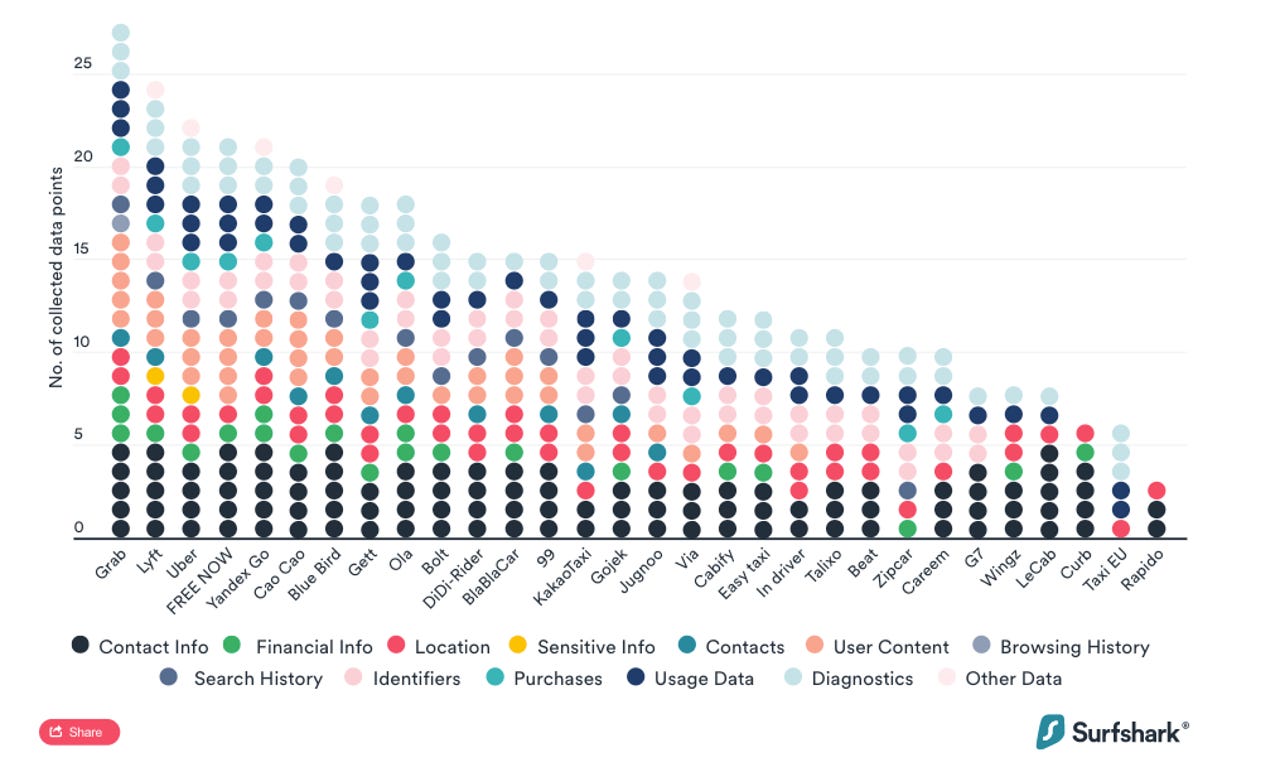































Mozilla announced this week that four organizations have joined its latest Data Futures Lab cohort. Place Trust, Driver's Seat Cooperative, Drivers Coop and Digital Democracy will all get$100,000 grants as well as access to Mozilla Fellows and a network of experts who can help them build out their platforms.
The apps will also get support to implement specific user-centric data governance features, policies, and practices. Mehan Jayasuriya, senior program officer at Mozilla, said the four projects "will pilot new models for data stewardship with existing communities and provide real-world examples of how users and communities can be given greater ownership and control over their own data."
Place Trust is a non-profit working to create maps of cities that are "open, reliable and accessible and place them in a perpetual legal trust in the public interest." Digital Democracy is an organization using an app called Mapeo to collect and share evidence of human and environmental rights abuses.
New York City-based Driver's Coop is a collectively-owned rideshare app with more than 5,000 drivers and 40,000 riders already using it.
Driver's Seat -- a cooperative owned and controlled by rideshare and delivery drivers -- is trying to put power back into the hands of on-the-ground workers, giving drivers more data and insights into how they can make money.
Champika Fernando, lead at the Data Futures Lab at Mozilla, toldZDNetthat Mozilla has worked to raise consumer awareness about the data collection practices of many of the most popular apps. But now they wanted to promote and support alternatives that respect data privacy.
The challenge, according to Fernando, is that it is extremely lucrative for apps like Uber, GrubHub, and others to collect as much information as possible, knowing that someone somewhere will eventually pay money for it.
"Today we have a few large actors that collect the majority of the data and share or steward that data in ways that benefit their own interests," Fernando said, noting that the four new members of the latest cohort needed support to carry out their missions.
"Organizations like these are not getting traditional investment attention because they are thinking about this in a totally different way. That's not the easiest path forward in terms of scaling and growth. So one of the roles the lab is trying to play is to invest financially in them but also bring in other funders and philanthropic funding to start with."
The Data Futures Lab was launched in 2020 as a way to support people around the world who are building products and services that aim to disrupt a digital economy that has become dependent on sucking up as much data as possible.
A recent report from Surfshark went through all of the most popular rideshare apps, finding that Uber and many other apps collect troves of data that have largely nothing to do with getting from one place to another.
 SurfShark
SurfShark Hays Witt, co-founder and CEO at the Driver's Seat Cooperative, toldZDNetthat drivers for these apps were initially sold on the promise of being able to make their own hours and earn as much as they wanted. But many drivers for rideshare apps and food delivery platforms quickly realized they are at the mercy of the platforms that provide little information other than where to go and when.
"Drivers told us they want to be able to own their data make choices at an individual level. I want data that I can trust about my earnings, about my expenses. I want data that helps me evaluate all of the different offers that I'm getting bombarded with from the platforms and make decisions that are in my own interest based on my own data. Drivers also want a way to talk about their data together to see, not just on an individual level, but how they fit into the city that they're working in. How am I doing versus other drivers?" Witt explained.
Witt added that drivers deal with loneliness and are looking to know whether their experiences are similar to others or are outliers. They want more information that compares them to other drivers so they can make changes to how they operate.
"What we've created is a technology platform and an organizational container for that platform to allow drivers to collect data about their work, interpret it themselves, and share it with each other in ways that they choose. They can learn from it in ways that improve their work experience at a really nuts-and-bolts level," Witt said.
"A driver uses our app to collect and share data about their trips and about their earnings. They get insights back in the app that help them see what their true pay is and how that changes based on decisions they make about the platform they work on or time of day."
 Tags chauds:
technologie
La sécurité
Tags chauds:
technologie
La sécurité